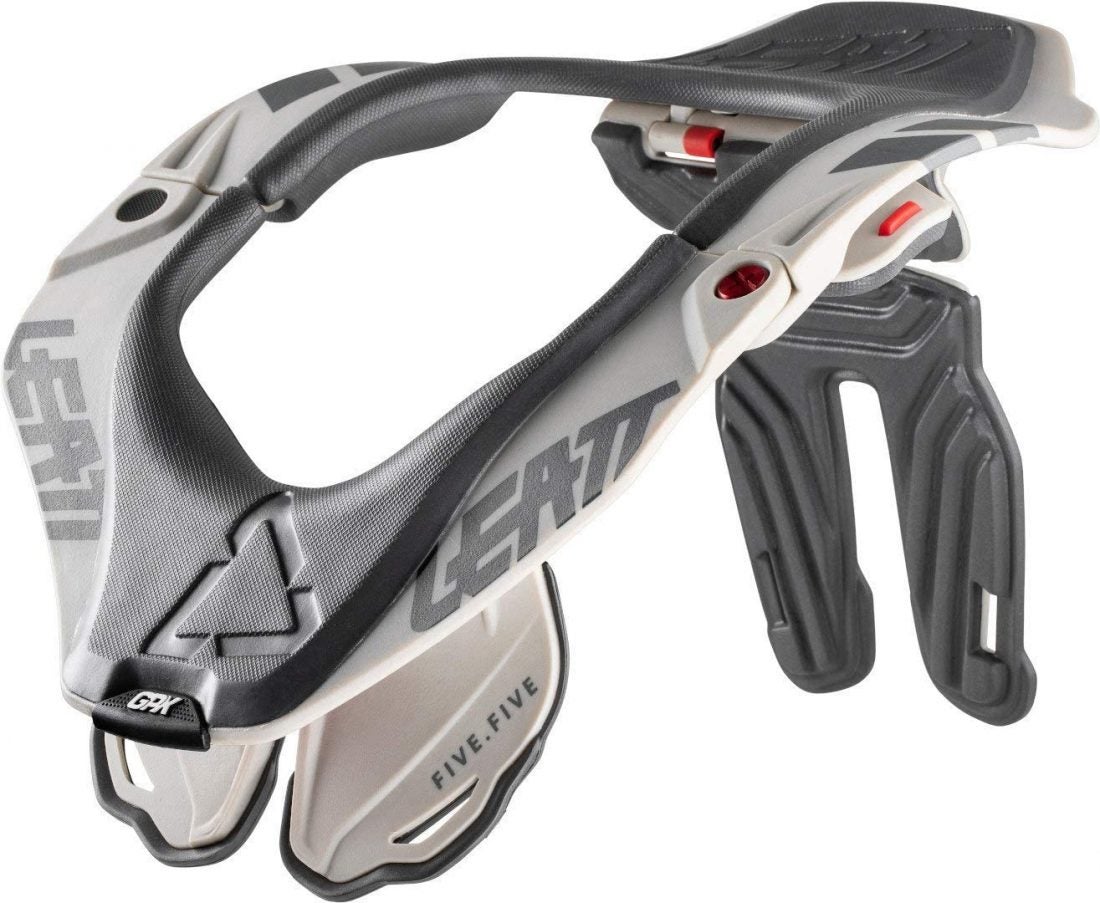Dirt bike neck braces are an essential piece of safety equipment that can help protect riders from serious neck injuries. In this article, we’ll outline the best dirt bike neck braces available on the market, along with their features, benefits, pros, and cons.
- Leatt GPX 5.5 Neck Brace
The Leatt GPX 5.5 Neck Brace is a top-of-the-line neck brace designed to provide maximum protection for riders. It features an adjustable thoracic strut, a low-profile design, and a comfortable and secure fit.
Features and Benefits:
- Adjustable thoracic strut for customized fit
- Low-profile design for added comfort
- Comfortable and secure fit with a quick-release buckle
- Compatible with most chest protectors
Pros:
- Offers excellent protection against neck injuries
- Highly adjustable for a customized fit
- Low profile design minimizes interference with helmet and jersey
- Compatible with most chest protectors
Cons:
- Higher price point than some other options
- Some riders may find it bulky or uncomfortable
- Alpinestars BNS Pro Neck Brace
The Alpinestars BNS Pro Neck Brace is a high-quality neck brace designed for off-road riding. It features a lightweight and durable construction, adjustable fit, and a comfortable and secure fit.
Features and Benefits:
- Lightweight and durable construction
- Adjustable fit for a customized fit
- Comfortable and secure fit with a quick-release buckle
- Compatible with most chest protectors
Pros:
- Offers excellent protection against neck injuries
- Lightweight and comfortable to wear
- Easy to adjust for a customized fit
- Compatible with most chest protectors
Cons:
- Some users have reported that the padding can compress over time
- May not fit as snugly as some other options
- Atlas Prodigy Neck Brace
The Atlas Prodigy Neck Brace is a popular choice among riders due to its lightweight and durable construction. It features a flexible design, adjustable fit, and a comfortable and secure fit.
Features and Benefits:
- Lightweight and durable construction
- Flexible design for added comfort
- Adjustable fit for a customized fit
- Comfortable and secure fit with a quick-release buckle
Pros:
- Offers excellent protection against neck injuries
- Lightweight and comfortable to wear
- Flexible design allows for a full range of motion
- Easy to adjust for a customized fit
Cons:
- Some riders may find it bulky or uncomfortable
- The sizing can be slightly off for some users
Should You Always Wear a Neck Brace When Riding a Dirt Bike?
While wearing a neck brace is not mandatory, it’s highly recommended for riders to wear one. Neck injuries are common in dirt bike accidents, and a neck brace can help prevent serious injuries or even death. It’s always better to err on the side of caution when it comes to your safety.
How to Properly Wear a Dirt Bike Neck Brace
Wearing a dirt bike neck brace properly is essential for it to provide the best protection. Here are the steps to properly wear a neck brace:
- Put on your helmet and adjust it for a snug fit.
- Fasten the neck brace around your neck and adjust the fit as needed.
- Attach the front and rear sections of the neck brace to your helmet.
- Adjust the brace so that it’s comfortable and allows for a full range of motion.
Dirt Bike Neck Injuries: Are They Common?
Neck injuries are a common occurrence in dirt bike accidents. These injuries can range from mild strains and sprains to more severe injuries such as fractures and spinal cord damage. Wearing a neck brace can help prevent or reduce the severity of neck injuries, making it an essential piece of safety equipment for dirt bike riders.
Conclusion
Investing in a high-quality dirt bike neck brace can help prevent serious neck injuries and provide peace of mind while riding. When choosing the best neck brace for your needs, consider factors like construction, adjustability, and comfort. No matter which neck brace you choose, remember to wear it properly and make sure it’s snug and secure before riding. By taking the proper precautions and wearing a neck brace, you can enjoy the thrill of off-road riding while minimizing the risk of serious injury.

 Your Privacy Choices
Your Privacy Choices